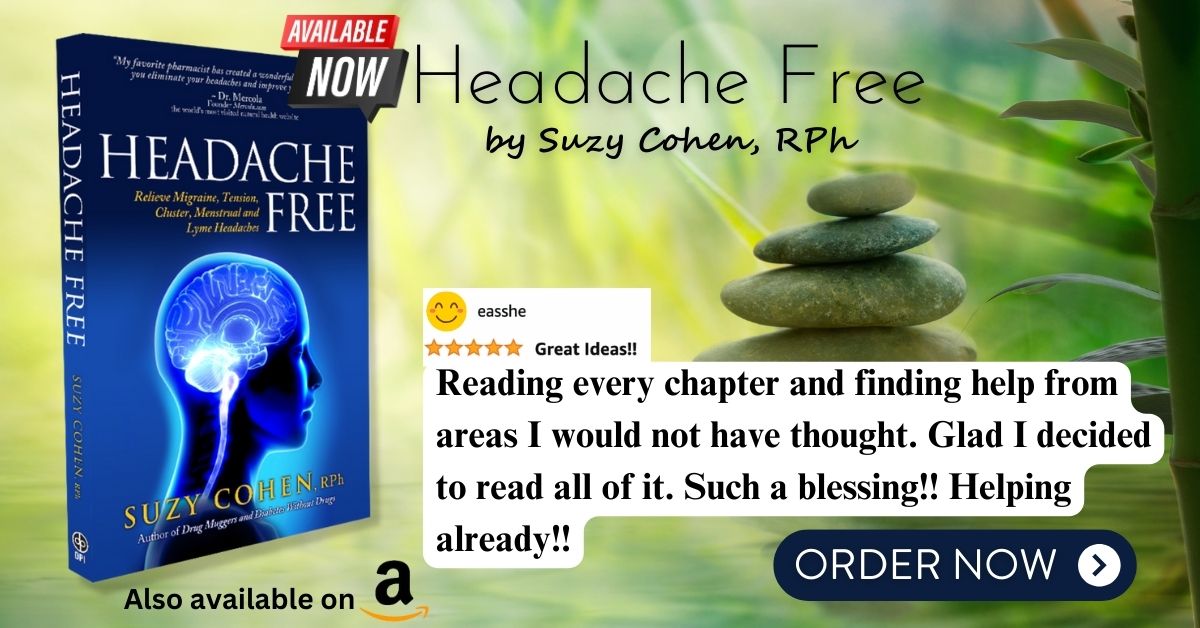What's On This Page?
ToggleToday, I’m diving into the soothing world of natural remedies, specifically exploring how eight remarkable herbs and probiotics can help misophonia. This is a problem where certain sounds can trigger intense emotional reactions in people affected by the condition.
It’s often described as the “hatred of sound,” is a condition where specific everyday noises trigger intense emotional reactions such as irritation, anger, or anxiety. Common trigger sounds include chewing (even your own chewing), breathing, or clicking pens, and the reactions can significantly disrupt daily functioning and social interactions. Scroll down to see Table 1. for a more complete list of sounds that can be triggering.
The exact cause of misophonia is not fully understood, but it is believed to involve abnormal brain connectivity or heightened activity in the parts of the brain that process sound and emotions. I wrote a very comprehensive article about this topic once before and covered risk factors, the endocannibinoid system, medications that trigger it, medications that help it and much, much more.
You may want to read my other article, When Noise Triggers Rage: Exploring the Mysteries of Misophonia.
Summarizing the Most Recent Research
Before you dismiss this condition, let me highlight some recent studies because there is growing interest as of late.
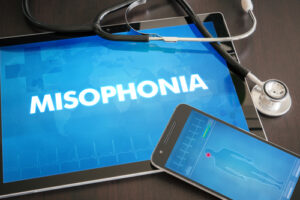 In November-December 2023, research from Bolu Izzet Baysal Mental Health and Disorders Hospital and Çukurova University aimed to define misophonia within the broader spectrum of psychiatric disorders, suggesting it should be considered a mental disorder itself due to its frequent co-occurrence with other psychiatric conditions.
In November-December 2023, research from Bolu Izzet Baysal Mental Health and Disorders Hospital and Çukurova University aimed to define misophonia within the broader spectrum of psychiatric disorders, suggesting it should be considered a mental disorder itself due to its frequent co-occurrence with other psychiatric conditions.
From a neuropsychological perspective, a September 2023 study by Texas State University researchers was the first to examine ‘cold’ cognitive functions in individuals with misophonia, potentially opening new avenues for understanding the cognitive underpinnings of the disorder.
Earlier in June 2023, researchers from the University of Sussex explored the sounds that trigger misophonic reactions. Their work challenged the traditional understanding of trigger specificity in misophonia and sought to map the broader spectrum of sound intolerances, which could redefine how triggers are conceptualized and managed. The brain overreacts, it’s more than just a sound issue.
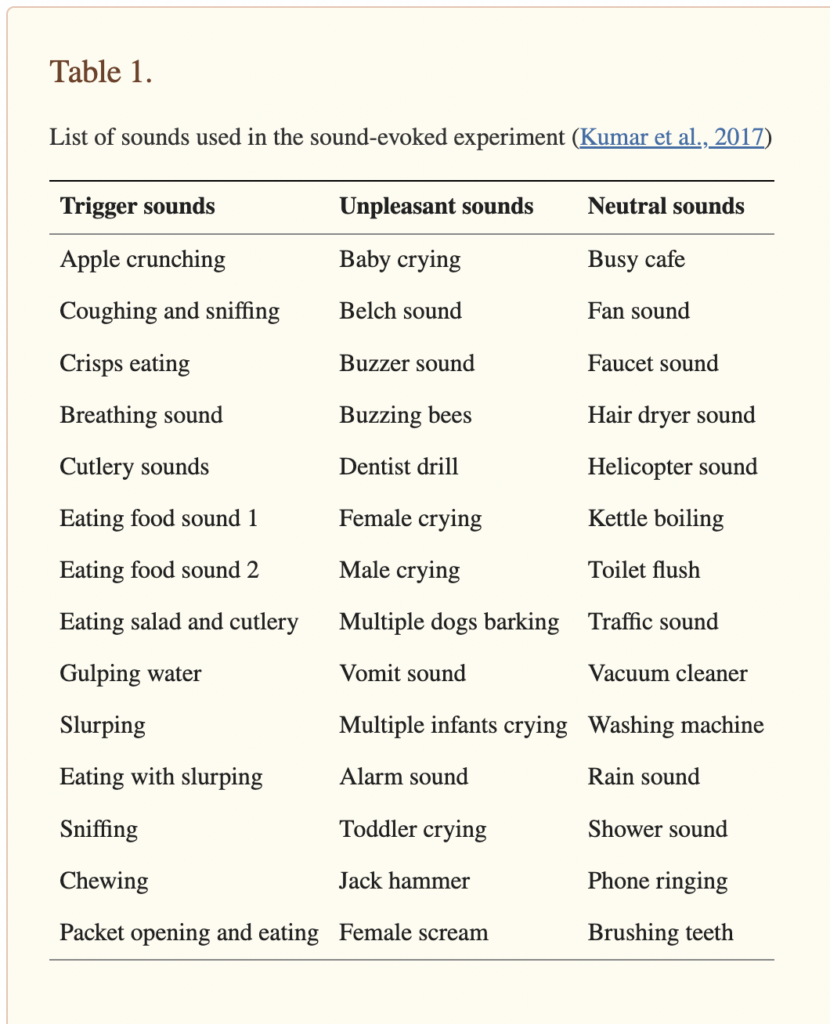
The Outlook and Options
While there is no cure, treatment options like cognitive behavioral therapy, sound therapy, and certain lifestyle adjustments can help manage symptoms and improve quality of life. I think the outlook is much better today than it has been in prior years when no one gave this condition attention.
Whether you or someone you love is dealing with the stresses of daily life or the specific challenges of misophonia, nature offers a bounty of solutions that can help calm the mind and soothe the nerves. As a registered pharmacist who is passionate about natural remedies, I’m going to tackle your best options for this condition – with the caveat that you ask your doctor what’s best for you.
The 9 Best Natural Treatment Options
The following herbal remedies and probiotics all do one or two things, they raise GABA activity or they improve serotonin production or utilization. Doing those two things seems to help people with misophonia. If you would like to understand more about this condition, its connection to OCD and/or Tourette, anxiety, bipolar, autism or depression, please consider reading my other article on this topic: When Noise Triggers Rage: Exploring The Mysteries Of Misophonia.
Here are my 9 best options for your consideration:
- Valerian Root: Known for its sedative effects, Valerian Root is believed to increase levels of GABA in the brain by preventing the breakdown of this neurotransmitter. This can help in managing anxiety and improving sleep quality, which could be beneficial for misophonia patients who are sensitive to triggers due to stress.
- Passionflower: Similar to Valerian Root, Passionflower is thought to increase GABA levels in the brain, enhancing its calming effects. It’s used to reduce anxiety and improve sleep, which can help in reducing the sensitivity to misophonia triggers. I put some of this (as well as lemon balm) in my Sleep Script® Tranquility capsules.
- Lemon Balm: Lemon Balm is reported to have a calming effect by also potentially enhancing GABA levels. It’s used for managing nervous agitation and stress-related symptoms, which can indirectly help in situations triggered by misophonia.
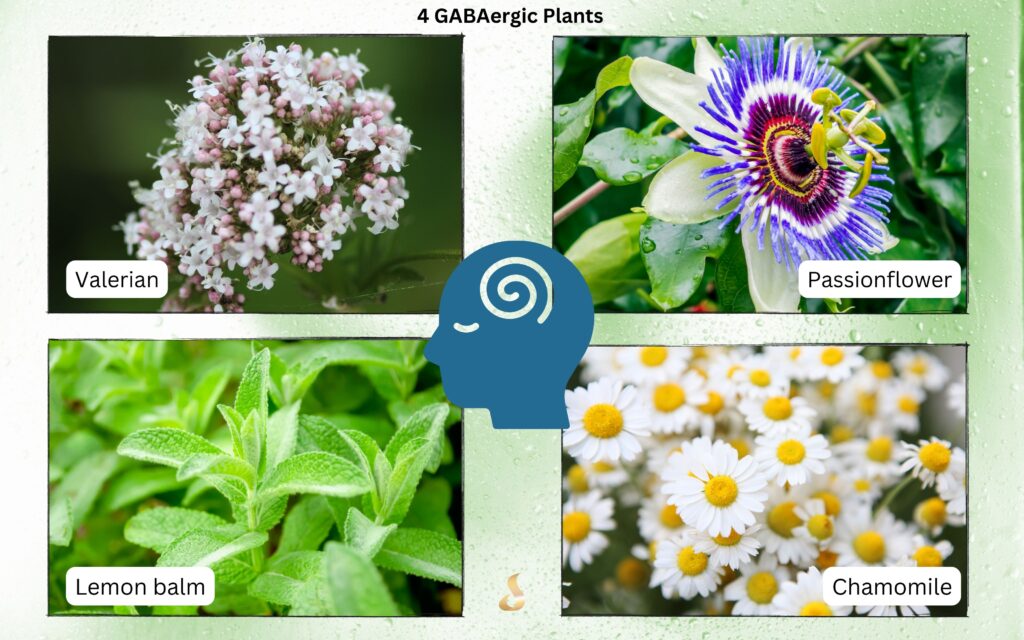
- Ashwagandha: As an adaptogen, Ashwagandha helps the body manage stress more effectively. While its direct effects on GABA are less clear, it might modulate the stress response system, which could reduce the overall sensitivity to misophonia triggers. I put KSM-66® brand of this in Thyroid Script® because it also improves T3 activation and rest/sleep.*
- Chamomile: Chamomile is commonly understood to act as a mild tranquilizer and sleep-inducer. These effects are attributed partly to its impact on the GABA receptors, similar to drugs like benzodiazepines, though much milder. I put this in my Sleep Script® too!
- GABA Supplements: These supplements are marketed to increase GABA directly; however, their effectiveness in crossing the blood-brain barrier and actually raising GABA levels in the brain is debatable. If they do work as intended, they could potentially calm the nervous system and reduce reactions to triggering sounds in misophonia.I put some of this in my Sleep Script® capsules – it’s a pretty sweet supplement, one that should help you achieve tranquility. It’s not intended as a treatment of misophonia, but it does coincidentally contain some of the strongest GABAergic herbs in it as you can see.
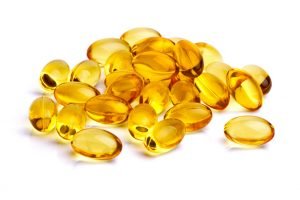
Fish Oil has DHA - Fish Oil supplements are known for their neuroprotective properties. Fish oils are rich in omega-3 fatty acids, which are crucial for brain function and may aid in neurotransmission, including potentially raising serotonin levels. Foods and supplements rich in omega-3s would have a pretty direct effect. Fish oils with EPA convert in the body to DHA (or you can buy high DHA supplements or combinations of EPA/DHA).
- Phosphatidylcholine: This dietary supplement is involved in cell membrane integrity and may also support brain health by improving synaptic function (thus improving “communication” between synapses). It could take a while. You can check your gene SNPs too.
I have a PEMT SNP so I supplement with this regularly just for fun and general health. - Probiotic Strains: Specific probiotic strains that are known to potentially increase serotonin production include Lactobacillus and Bifidobacterium species. This is a big topic, one that is worthy of its own section down below.
I think it’s worth your exploration only because working on gut microflora might have long-lasting (perhaps lifelong!) impact on brain health, as opposed to medications which work for a few hours until you need another pill. I’m not discounting those, I’m saying one might be more of a long-lasting solution and the other is for immediate help. Medication with probiotics work well together.
Gut-Brain Axis: The Role of Probiotics in Managing Misophonia
We think of probiotics as something that helps constipation, or irritable bowel syndrome. Maybe you take them daily, or maybe just while you’re on an antibiotic. But the gut-brain axis is crucial for good health, and comes to the forefront of my research when I think of mental health disorders. I did a lot of research to find you probiotic strains that I think could help with misophonia, even a little bit.
There are studies to prove what I am saying, which I link below. Let me offer you the following strains can help in the production of serotonin precursors in the gastrointestinal tract, which is significant since a large portion of the body’s serotonin is indeed produced in the gut.
Here are a few notable ones:
Lactobacillus helveticus R0052
This strain has been studied for its potential effects on stress and anxiety. Here’s a PAPER on it.
- Probiotic 3-in-1 Complete Formula by InnovixLabs contains both Lactobacillus helveticus R0052 and Bifidobacterium longum R0175. This supplement is marketed as supporting mood, digestion, and immune health.
Bifidobacterium longum R0175
This is another strain that has been looked at for its potential to reduce stress and improve emotional well-being. You can read about it in the same PAPER.
- Mood Probiotic by InnovixLabs specifically includes Bifidobacterium longum R0175 and is aimed at supporting emotional well-being and stress relief.
- Advanced Gut Health Probiotic by Genuine Health also contains Bifidobacterium longum R0175, among other strains, designed to support gut health and overall well-being.
Lactobacillus plantarum 299v
It’s known for enhancing gut health. Beyond its digestive benefits, this probiotic strain may positively influence mood and help alleviate symptoms of major depression through its effects on the gut-brain axis.
- GoodBelly Probiotics offers a line of probiotic drinks that contain Lactobacillus plantarum 299v, specifically formulated to support digestive health.
- Jarrow Formulas Ideal Bowel Support 299v contains Lactobacillus plantarum 299v and is marketed for its benefits on bowel health and reducing symptoms of irritable bowel syndrome.
Specifically, it reduces levels of kynurenine or quinolinic acid (QUIN) – both of which have significant impacts on mental health, as I’ve previously explored in my articles including this one, 7 Common But Strange Reasons for Insomnia. High levels of QUIN are commonly seen in major and/or suicidal depression.
This reduction is crucial because high levels of these compounds are associated with depressive symptoms, making Lactobacillus plantarum 299v a potentially valuable aid in mental wellness. I’d be remiss if I didn’t tell you here that B vitamins (like B6) and high-quality magnesium supplements also mitigate the production of quinolinic acid and may be useful. If you want more info on the Lactobacillus plantarum 299v, here’s a link to that STUDY.
Lactobacillus rhamnosus GG
This is a well-researched probiotic that has shown potential benefits for mood regulation and reducing stress in some studies. In April 2023, there was a paper published in the journal, Frontiers in Cellular and Infection Microbiology. If you want to learn, I’ve linked the paper: Lactobacillus rhamnosus GG ameliorates noise-induced cognitive deficits and systemic inflammation in rats by modulating the gut-brain axis.
- Culturelle Digestive Health is one of the most popular supplements containing Lactobacillus rhamnosus GG. It’s well-known for its benefits in promoting digestive health and supporting the immune system.
- NOW Probiotic-10 offers a blend of different bacterial strains including Lactobacillus rhamnosus GG to promote a balanced microbial environment in the gut.
Bacillus coagulans
This is another well-researched probiotic strain that appears to help with mood. In an animal MODEL it appeared to help with depression and anxiety. The study was published in Feb 2023 Neurochemistry International and is entitled, Anxiolytic- and antidepressant-like effects of Bacillus coagulans Unique IS-2 mediate via reshaping of microbiome gut-brain axis in rats.
This is found in many dietary supplements and I put some in my superfood green drink mix (goitrogenic free) called Yummy Greens® a product that is rich in vitamin C, another nutrient that comes in handy in terms of serotonin synthesis. Here are a few more commercial options that contain Bacillus coagulans – remember they’re not intended to treat misophonia. They’re for gut microbiota support and health*
- Schiff Digestive Advantage Daily Probiotic has Bacillus coagulans and combines it with dietary fiber which can aid the probiotic in colonizing the gut more effectively.
- Thorne Research – Bacillus Coagulans is a clean, stand-alone Bacillus coagulans supplement, known for its potency and effectiveness in promoting gut health and supporting the immune system.
Summary
In our journey today, we explored nine natural remedies that can help manage misophonia and support overall mental health. From the calming effects of Valerian Root and Chamomile to the mood-stabilizing properties of probiotics like Lactobacillus plantarum 299v, each remedy offers its unique brand of relief and comfort.
As we consider integrating these natural allies into our lives, let’s keep in mind the importance of consulting with health professionals to tailor approaches that are safe and effective for our individual health profiles. With the right guidance and a mindful approach, we can harness these natural solutions to enhance our well-being and navigate the world of sounds with more peace and less stress.
By educating ourselves about these natural options and understanding how to use them wisely, we can make informed choices that contribute to our health and happiness. Let’s continue to support each other in our journey toward wellness, blending science with nature, and always moving forward with care and compassion.
Caution When Self-Treating Mental Health Disorders:
While the allure of natural remedies is strong, I want to remind everyone of the importance of proceeding with caution, especially when it comes to self-treating mental health disorders. Natural does not always mean safe for everyone, and while these remedies can be incredibly beneficial, they are not a substitute for professional medical advice or treatment.
Always consult with a practitioner – preferably one who understands holistic treatments – before starting any new treatment regimen, especially if you have pre-existing conditions or are taking other medications.
It’s crucial to ensure that any natural supplement does not interfere with your current treatments or health conditions and in this case misophonia often occurs with other disorders like OCD, Tourette syndrome, anxiety, depression and more. Remember, achieving the best health outcomes for yourself requires patience, and practice. It is a balanced dance between nature’s offerings and professional healthcare guidance! There’s a correlation between Tourette and misophonia. You can read about that HERE.

Suzy Cohen, has been a licensed pharmacist for over 30 years and believes the best approach to chronic illness is a combination of natural medicine and conventional. She founded her own dietary supplement company specializing in custom-formulas, some of which have patents. With a special focus on functional medicine, thyroid health and drug nutrient depletion, Suzy is the author of several related books including Thyroid Healthy, Drug Muggers, Diabetes Without Drugs, and a nationally syndicated column.

